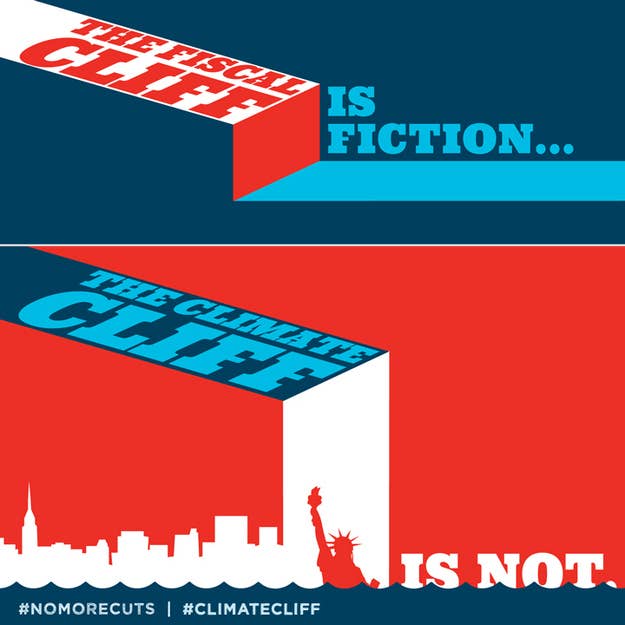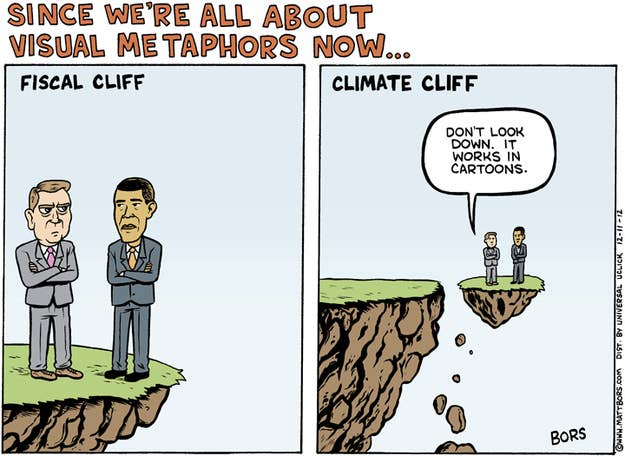
As members of Congress scramble to avert the “fiscal cliff,” environmental activists are using the moment of legislative deadlock to highlight what they hold up as a more urgent crisis — the “climate cliff.”
A campaign launched this month by the climate accountability organization, Forecast the Facts, contrasts what the group calls a “manufactured crisis” — to reach a budgetary deal before the first of the year, when automatic tax hikes and spending cuts are scheduled to go into place — with the “very real crisis of climate change."
“The fiscal cliff is being talked about with these fake claims of responsibility to future generations,” said Brad Johnson, the Forecast the Facts campaign manager behind the climate cliff initiative. “So they’re using language that would actually make sense if they were talking about climate change.”
“If we actually had leaders who cared about future generations in the way that they say they do, then climate change would have been addressed already,” Johnson told BuzzFeed.
The campaign, launched on Dec. 15, aimed to increase awareness and "win the Twitter war on the climate cliff versus the fiscal cliff,” Johnson said.
The climate cliff language — pushed out on Twitter by Forecast the Facts and other members of the climate and progressive communities — could not, of course, compete with the unceasing attention paid the budget showdown in Washington.
In the month of December, "climate cliff" was only tweeted about 4,300 times, compared to the more than one million tweets dedicated to the fiscal cliff, according to the Twitter analytics site, Topsy.
But the climate campaign did receive nearly 15,000 signatures — exceeding a goal of 10,000 — on a petition urging Congress make the climate cliff a “starting point for discussions on the present fiscal debate.”
Former Vice President Al Gore has also argued that climate legislation — specifically a carbon tax — would be a way to solve “the fiscal cliff and the climate cliff at the same time,” he told the Guardian this month. “By including the carbon tax in the solution to the fiscal cliff we can back away from the climate cliff.”
Rep. Ed Markey — a staunch climate advocate in the House who is now the Democratic frontrunner to fill John Kerry’s Senate seat next year — was one of the only members of Congress to talk climate during the fiscal cliff negotiations.
“If our country goes over the fiscal cliff, we will be able to climb back up,” said Markey on Dec. 4, at a climate briefing on Capitol Hill. “But if our planet goes over the climate cliff, we will plunge into an abyss of impacts that we cannot reverse.”
“There are people who are talking about climate change in the context of the fiscal cliff,” said Johnson. “Because once you confront climate change, you realize the 30-year fiscal debt is indistinguishable form the 30-year climate debt.”

